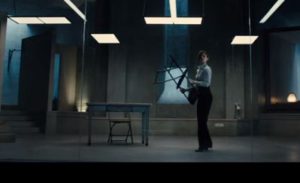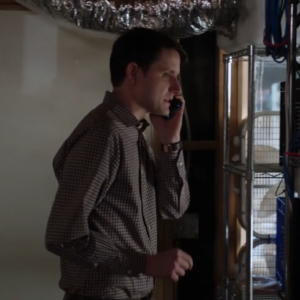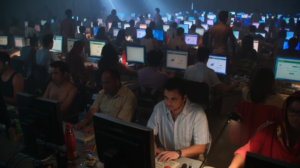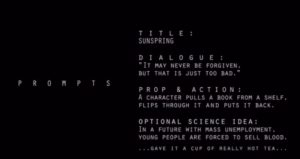Although an artistic director discussed adding a “human element” during his interview in the making-of portion following the trailer for Morgan, we here at the DMS still give IBM’s Watson credit for creating the chilling companion piece to SunSpring. A truly terrifying artificial intelligence (“AI”) would probably never let on that it existed. IBM’s Watson has failed in that regard (much like Olympic Games), but if we are to believe the marketing campaign accompanying Morgan, Watson created the trailer below by analyzing the film. Aside from the visual allusions to Silence of the Lambs and musical accompaniment from the Twin Peaks Children’s Choir, the most unsettling part of this trailer is that a computer created something so manipulative.


Borderline autonomous cars are gradually seeming more like an inevitability and less like a machine that might end up making kill decisions. At the least, the US, UK, China, Israel, Pakistan, Iran, Iraq, Nigeria, Somalia, South Africa, Hamas, and Hezbollah all have armed drones that fly through the air at their disposal. It takes little imagination to read Stanislaw Lem’s Fiasco and its featured planet, Quinta, with rogue autonomous defense systems as a forgone conclusion.

 Jared from “Silicon Valley” is a pretty nice guy. He is the most compassionate voice on the show. Sometimes to get a laugh the show will also have him say something incredibly dark and tragic about his past. His childhood, thru several grim anecdotes, was a bleak affair referencing intense loneliness and poverty.
Jared from “Silicon Valley” is a pretty nice guy. He is the most compassionate voice on the show. Sometimes to get a laugh the show will also have him say something incredibly dark and tragic about his past. His childhood, thru several grim anecdotes, was a bleak affair referencing intense loneliness and poverty. It was completely crushing to see Jared’s final action of the season, but it also felt so real. Jared knows poverty better than anyone else on the team and his action shows us he is willing to go further than anyone else on the team to never be poor again. For the rest of the team success is movable swimming pools and celebrity, for Jared it is finally killing the ever present specter of poverty he has known all his life.
It was completely crushing to see Jared’s final action of the season, but it also felt so real. Jared knows poverty better than anyone else on the team and his action shows us he is willing to go further than anyone else on the team to never be poor again. For the rest of the team success is movable swimming pools and celebrity, for Jared it is finally killing the ever present specter of poverty he has known all his life.